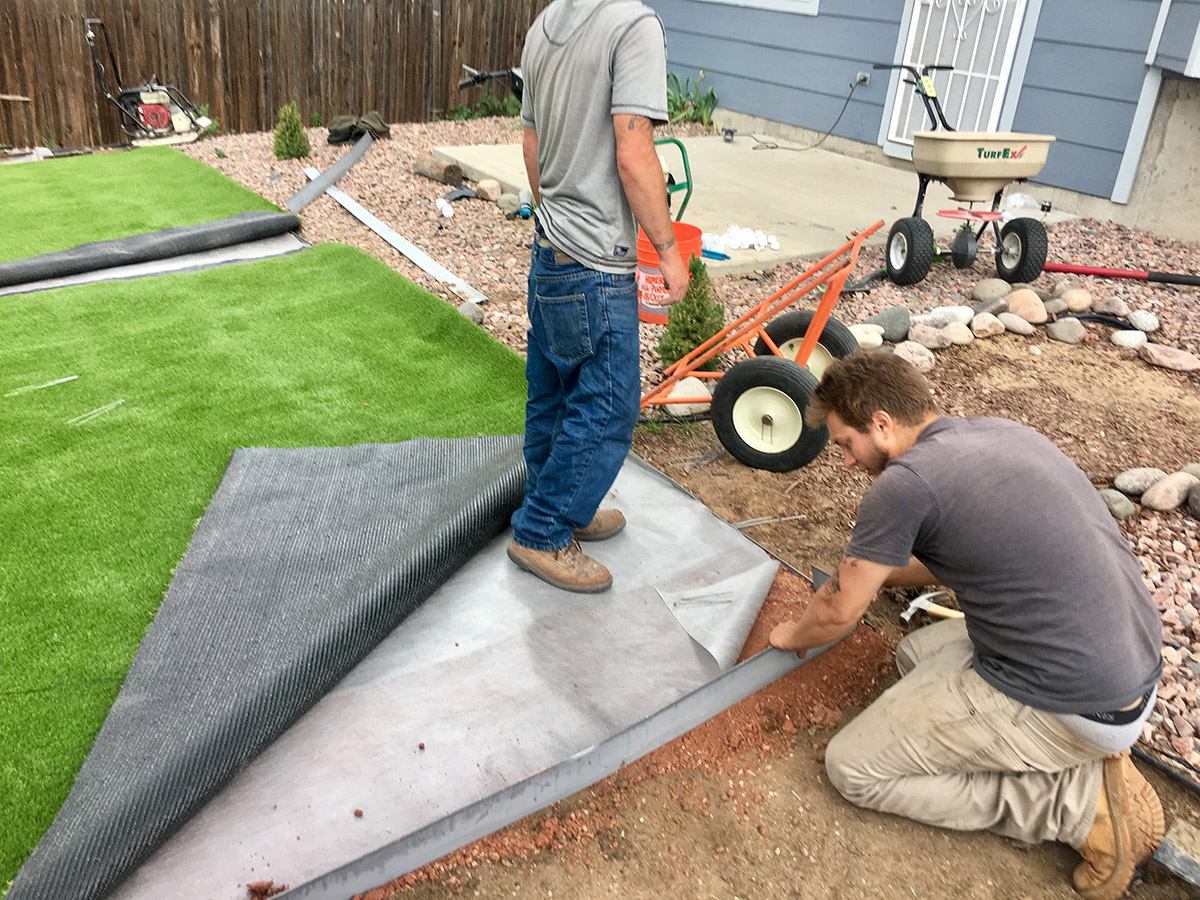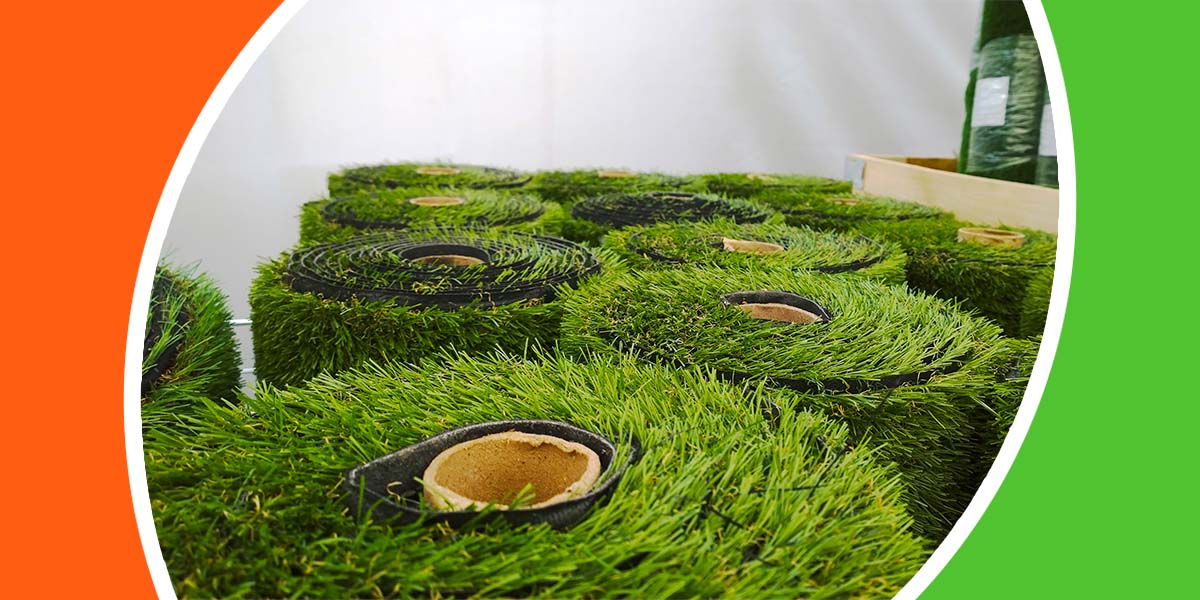Eco-Friendly Arizona Artificial Turf for a Year-Round Lush Green Lawn
Eco-Friendly Arizona Artificial Turf for a Year-Round Lush Green Lawn
Blog Article
Explore the Environmental Conveniences of Opting for Artificial Grass Solutions
The fostering of man-made lawn services provides a compelling chance to deal with pressing environmental challenges. By substantially reducing water usage and decreasing the application of harmful chemicals, these choices not just promote lasting landscape design yet likewise shield local ecological communities.
Water Preservation Benefits
One of one of the most substantial benefits of artificial lawn is its ability to conserve water. Conventional lawn lawns need substantial watering, especially in areas susceptible to drought or water constraints. On the other hand, synthetic grass does not require watering, dramatically minimizing the overall need for water resources. This feature is especially advantageous in deserts where water scarcity is a pressing worry.
By getting rid of the need for regular watering, synthetic grass adds to sustainable landscape techniques and assists reduce the environmental effect of excessive water intake. The preservation of water prolongs to the reduction of runoff, which can lead to soil disintegration and waterway contamination.
In addition, the installment of synthetic lawn allows municipalities and homeowners to designate water sources more efficiently, focusing on crucial usages such as drinking water and agriculture. The shift in the direction of synthetic grass not just promotes liable water usage yet also lines up with more comprehensive ecological objectives intended at maintaining natural deposits.
As areas increasingly prioritize sustainability, the water preservation advantages of synthetic grass present a compelling case for its fostering in residential and industrial landscaping projects.
Reduced Chemical Usage
The transition to man-made grass dramatically decreases the reliance on chemical treatments frequently utilized in natural grass maintenance. Traditional turf management generally entails the application of herbicides, chemicals, and plant foods to promote growth and control pests. These chemicals can present dangers to human health and wellness, regional wildlife, and the setting, adding to dirt and water contamination.
In comparison, fabricated lawn eliminates the need for these unsafe compounds. When set up, it calls for very little upkeep, largely including normal cleaning and occasional infill replenishment. This decrease in chemical usage not only benefits the prompt atmosphere yet additionally adds to more comprehensive ecological stability. By decreasing the launch of synthetic substances right into the ecosystem, synthetic grass promotes much healthier soil and water systems.
Furthermore, the lack of chemical runoff associated with artificial turf setups helps safeguard local rivers from air pollution, sustaining marine life and preserving biodiversity. Arizona artificial turf. As areas progressively prioritize lasting methods, selecting artificial grass presents a feasible solution that straightens with environmental preservation goals. With this shift, homeowner can delight in lavish environment-friendly spaces without jeopardizing eco-friendly health and wellness, leading the way for a more sustainable future
Reduced Carbon Impact

Moreover, the installment of synthetic grass can result in substantial water conservation. Natural yards require substantial amounts of water for watering, which not just includes in the carbon impact linked with water removal and therapy yet also pressures regional water resources. On the other hand, man-made lawn needs marginal maintenance, requiring no watering, consequently considerably lowering water usage and its associated power costs.
Additionally, the longevity of synthetic grass adds to its reduced carbon influence. With a life expectancy of approximately 15 years or more, the demand for constant substitutes is diminished, leading to much less waste and lower energy intake in manufacturing and taking care of typical grass choices. Overall, synthetic grass offers a lasting alternative for eco conscious landscaping.
Environment Preservation
Habitat conservation is an important consideration in the debate over landscaping options, particularly when comparing fabricated lawn to all-natural turf. All-natural yard lawns commonly call for substantial upkeep, consisting of the usage of pesticides, fertilizers, and herbicides, which can negatively impact regional ecosystems. These chemicals can leach right into the dirt and rivers, hurting native flora and fauna and interrupting regional habitats.
In comparison, synthetic grass presents a chance to lower the environmental impact of landscape design. By selecting artificial turf, homeowners can decrease the interruption of all-natural habitats connected with standard yard care practices. Fabricated grass gets rid of the requirement for harmful chemicals, therefore shielding nearby wild animals and maintaining the integrity of surrounding communities. The installation of fabricated lawn can lead to the conversion of former yard locations into more biodiverse landscapes, such as pollinator yards or indigenous plant areas, which can sustain neighborhood wildlife.
Ultimately, the transition to artificial turf not only preserves water and minimizes upkeep efforts however additionally promotes a more harmonious relationship in between human tasks and the native environment, advertising habitat conservation at the same time.
Long-Term Sustainability
Lasting sustainability is a critical variable in evaluating the benefits of synthetic grass over standard lawn lawns. One of one of the most significant benefits of synthetic grass is its durability; it can last up to 15-20 years with minimal upkeep, whereas natural yard calls for constant reseeding and replacement. This long life minimizes the demand for constant resources, such as water, fertilizers, and pesticides, which are vital for keeping a healthy and balanced grass lawn.
Furthermore, synthetic grass adds to a reduction in carbon emissions connected with yard care equipment. Traditional lawns commonly require gas-powered lawn mowers, trimmers, and blowers, every one of which add to air pollution. Phoenix turf companies. In comparison, synthetic turf removes the need for such look at these guys equipment, advertising a cleaner setting
Additionally, the production of fabricated lawn significantly makes use of recycled materials, boosting its sustainability account. As suppliers take on environment-friendly techniques, the environmental impact of synthetic grass remains to diminish.

Verdict
The fostering of synthetic grass services presents substantial ecological benefits, consisting of considerable water preservation, minimized reliance on hazardous chemicals, and a reduced carbon impact. In addition, synthetic grass help in protecting all-natural habitats by reducing land disruption and promoting long-term sustainability through the use of durable products. Jointly, these aspects highlight the possibility of man-made lawn to contribute favorably to ecological health and use a viable choice to typical landscape design techniques in an increasingly resource-conscious world.
In contrast, fabricated grass does not require watering, significantly reducing the total need for water resources. By lessening the launch of artificial compounds into the ecological community, synthetic lawn advertises healthier dirt and water systems.
Additionally, the installation of fabricated turf can result in significant water conservation. In comparison, check these guys out man-made grass needs marginal maintenance, calling for no watering, thus considerably lowering water use and its connected power prices.

Report this page